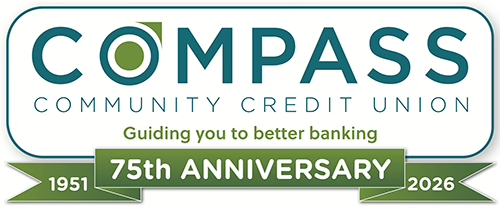An individual’s personal and financial information is a valuable commodity, and protecting it is key to maintaining financial security. Being able to recognize the signs and understand the differences between frauds and scams is essential in safeguarding oneself from having their hard-earned money taken away by scammers and fraudsters. Here are the differences and some practical tips to help people avoid falling victim to deceitful practices.
Fraud:
Fraud is financial theft without one’s permission or knowledge. Fraud refers to the deceptive and dishonest activities carried out with the intention of gaining financial or personal benefits––all while breaking the law. Examples of fraud include unauthorized use of someone’s credit or debit card, stealing someone’s identity and opening accounts in their name, and taking over an unsuspecting person’s financial accounts. Fraud is more difficult to protect oneself from than scams, as it happens without people knowing about it. However, regularly keeping an eye on financial accounts for suspicious activity is key to spotting it quickly.
Scams:
A scam is financial theft with one’s permission or knowledge. It’s a trick that is designed to persuade people into believing false information or promises, with the goal of gaining their money, personal information, or other valuables. Scammers often manipulate their victims by exploiting their trust. Examples of scams include people pretending to be debt collectors, offering fake investment opportunities, or promising fake lottery or prize winnings. For example, a scammer could mail, call, text, or email someone to tell them they’ve won a prize through a lottery or sweepstakes and then ask them to pay an upfront fee to receive the rest of the money. There is no prize. The scammer simply wanted quick payment from the victim. One of the most important ways people can avoid falling victim to scams is by staying informed about the latest scams––that way they spot that something is suspicious before they agree to take action.
Tips to Avoid Becoming a Victim:
Be Caution When Sharing Information – People should be cautious about sharing personal or financial information, whether online or offline. They should avoid revealing sensitive information, such as banking information, passwords, Social Security numbers, addresses, and phone numbers to unfamiliar callers, email senders, or unfamiliar websites.
Strengthen Online Security – People should use strong, unique passwords for each online account and use two-factor authentication whenever possible. Two-factor authentication is an extra security step in the process of logging into an account. As usual, people enter either their username or email address––followed by their password. However, instead of being granted access to their account after entering the password, the user needs to confirm their identity via another specified method. For example, the user may receive a text message or an email with a one-time code that must be entered to complete the login process. Other two-factor authentication methods include biometric information, such as fingerprint or facial recognition scanning.
Resist Pressure to Take Immediate Action – Acting in urgency is a warning sign of a scam. Scammers want people to act quickly and make payments without taking the time to think the situation through. Honest organizations will give people time to make a decision.
Avoid Unusual Payment Methods – If someone is asked by an unfamiliar person or business to send a payment via a wire transfer, prepaid card, or cryptocurrency, they should not do it. These methods are nearly untraceable, and once the money is sent, it’s usually gone for good.
Develop Awareness – People should regularly educate themselves about the latest tactics being used by fraudsters and scammers. Common frauds and scams are regularly shared on the Consumer Financial Protection Bureau’s website. This can help people spot common warning signs and red flags that might indicate a fraudulent attempt to obtain their financial or personal information before it happens.
Trust Any Instincts – If something seems too good to be true, it probably is. If someone is suspicious about something, they should talk with a trusted friend, family, or their financial institution before taking action.
The Bottom Line:
Knowing the difference between frauds and scams is an important part of understanding the full picture in regard to the deceptive practices that exist in today’s world. By educating themselves and being prepared to spot the red flags, people can avoid falling victim to fraudsters and scammers.


